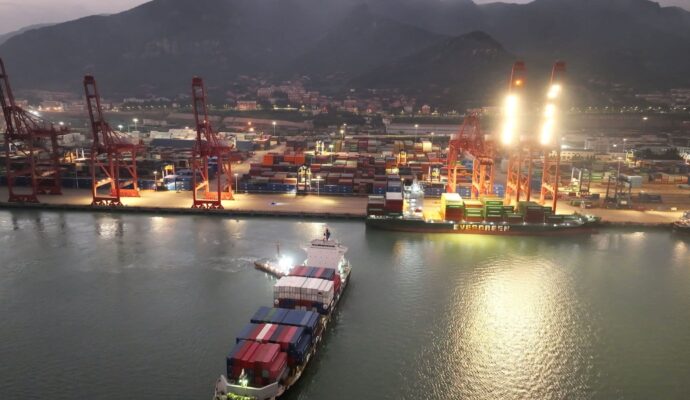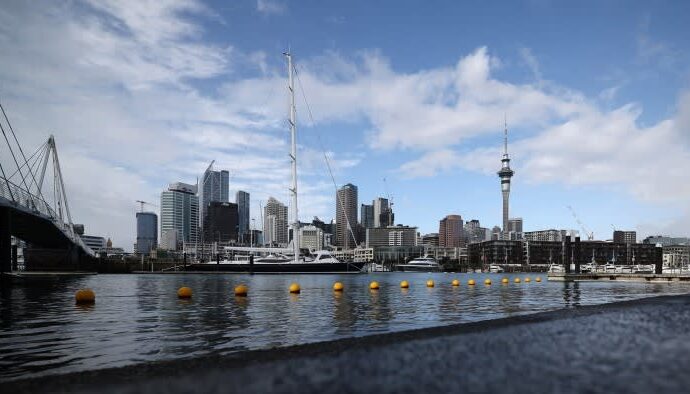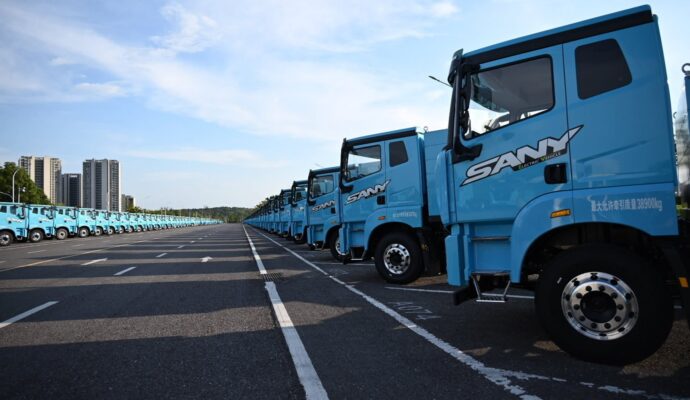Unlock the Editor’s Digest for free
Roula Khalaf, Editor of the FT, selects her favourite stories in this weekly newsletter.
Rodrigo Duterte’s arrest and transfer to the International Criminal Court in March led many political pundits to declare the end of the former Philippines president’s political dynasty.
But his detention 11,000km away in The Hague and charges of crimes against humanity were not enough to prevent him from being elected in absentia this week as mayor of his hometown in Davao City.
The midterm polls have revitalised the Duterte family’s political fortunes and put his daughter Sara, who is currently vice-president, in the running for a presidential election in 2028 that could have far-reaching consequences for regional security and disputes in the South China Sea.
The results could also threaten the administration of President Ferdinand Marcos Jr, who has been locked in a bitter rivalry with the Duterte clan.
The elections showed that “the Dutertes are still a dominant dynasty”, said Maria Victoria Maglana, an activist who lost a congressional race in Davao to Duterte’s son Paolo.
“We were well aware of how popular the Dutertes are” in Davao, she added. “What we were not ready for was how responsive people were to the call for them to vote for the slate of the Dutertes, both locally and nationally.”
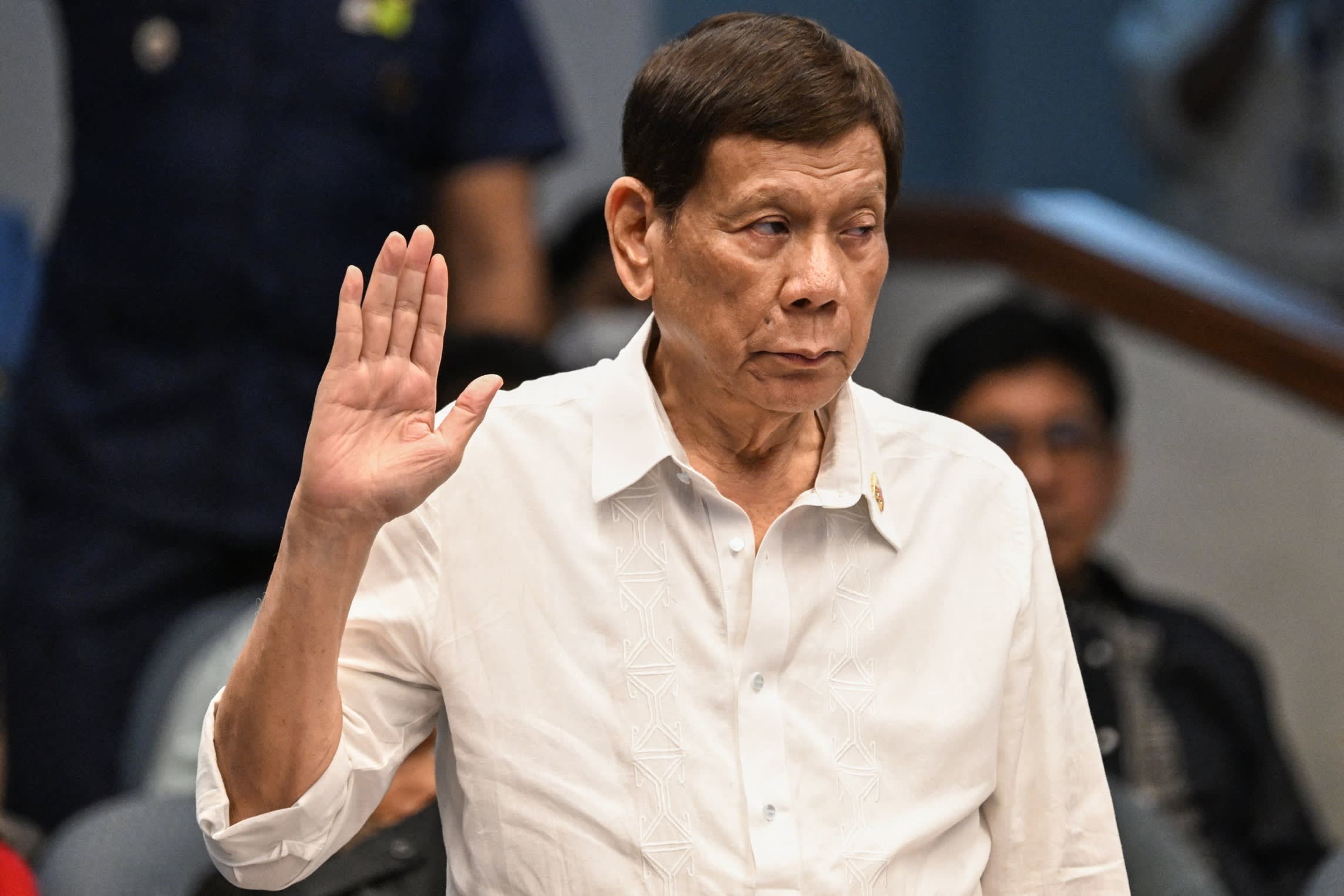
Political analysts said support for the Dutertes was driven by voters’ sympathy for the ageing former president and a perception that his family was being persecuted by Marcos, who is the son of the Philippines’ former dictator.
“Many of them believe that what happened to him was unfair, and given his age, and that he is a former president, respect should have been provided to him,” said Ramon Beleno III, an independent political analyst.
Some supporters of Duterte, 80, believed that the race could be his last, and wanted to show their gratitude by voting for him, Beleno added.
Duterte was arrested by Philippines’ authorities in March and handed over to the custody of the International Criminal Court over his deadly war on drugs, which rights groups say killed up to 30,000 people.
Sara Duterte, who ascended to the vice presidency in 2022 in an electoral pact with Marcos, is under separate investigation in Manila for alleged misuse of government funds.
She also faces impeachment charges brought by the president’s allies after she threatened last year to have him assassinated if she was harmed.
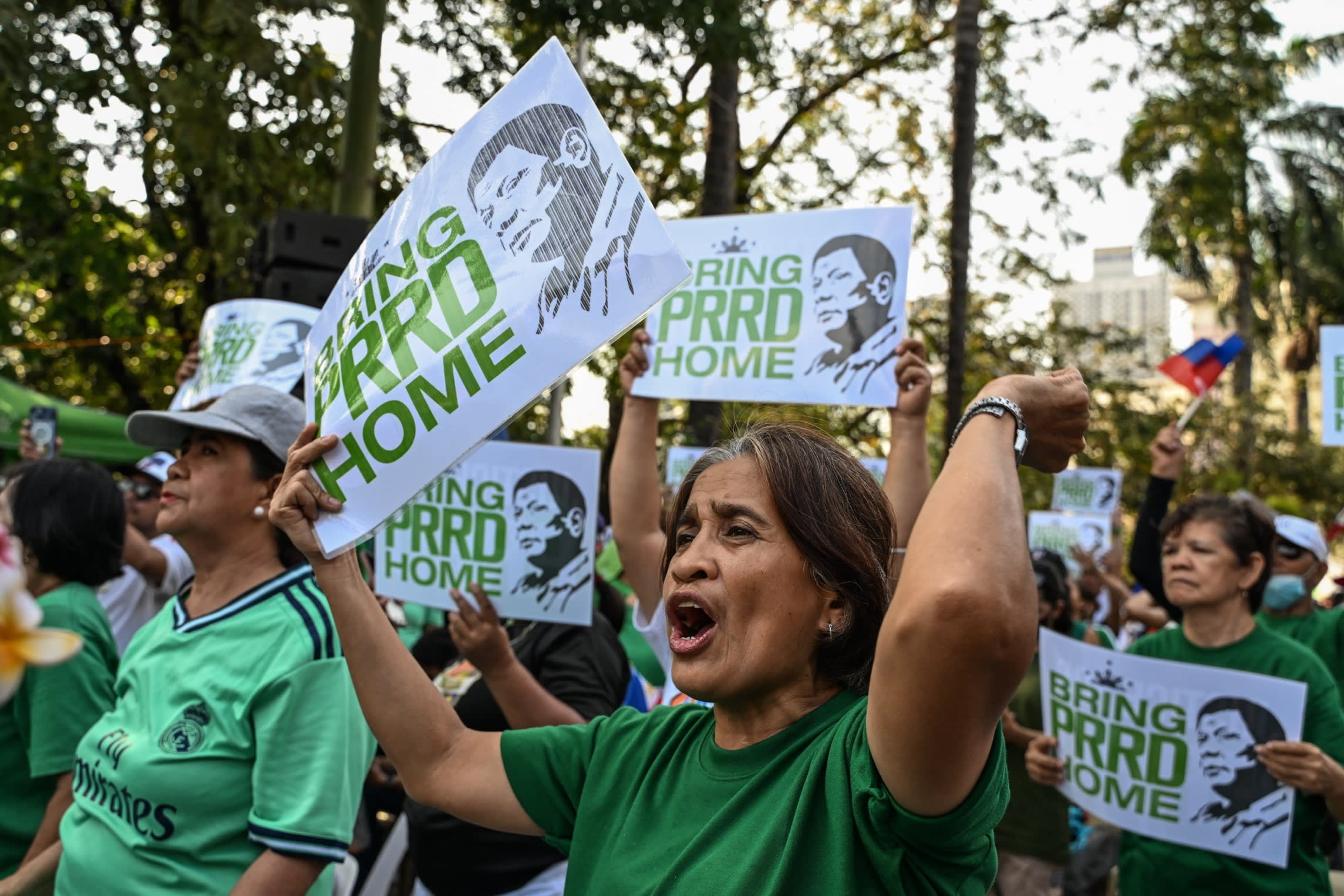
Marcos retained a majority in both houses of congress in the election, but allies of the Dutertes may have secured enough support in the senate to block Sara Duterte’s impeachment, which would bar her from politics for life. Her trial in the Philippines’ upper house is set to begin in July.
“We may not have won every seat, but our work and mission continue,” Marcos said in reaction to the poll results.
In Davao, where the Duterte family has held power for 34 years, the former president operated “death squads” that he has argued targeted criminals n the narcotics trade. He later extended the campaign on a national scale, leading to the deaths of thousands of mostly poor Filipinos and raising global alarm over extrajudicial killings.
He was re-elected as the city’s mayor, a position he last held in 2016, by a huge margin, replacing his son Sebastian, who was his running mate and is expected to serve in his absence.
Two of Duterte’s grandchildren were also elected to regional positions in Davao, bringing the total number of family members holding public office to at least six.
This week’s election was also seen as a proxy battle for the 2028 presidential race, which Marcos is prevented from contesting because of a one-term limit. The stronger-than-expected results for Duterte’s relatives and political allies could galvanise support for Sara Duterte, who this week called the election a “renewed beginning”.
A Sara Duterte presidency could see Manila pursue closer ties with China, which would mark a revival of the elder Duterte’s policy and a big shift from Marcos, who has taken an assertive stance against Beijing’s territorial claims in the South China Sea and has strengthened defence ties with the US and its allies.
But first, she would need to survive the impeachment inquiry. The Dutertes need nine senators in the 24-seat chamber to oppose impeachment or abstain from the vote in order to avoid her removal from office.
“After the midterms, it seems there will be eight senators likely to side with the vice-president or abstain, so she just needs to flip one,” said Peter Mumford, Eurasia Group’s head of south-east Asia. “That seems very doable.”
Beleno warned that the numbers could change closer to the vote. “There are no permanent allies or enemies in Philippines politics”, where personalities dominate rather than parties, he said.
In a reflection of the fluidity of Filipino politics, Imee Marcos, a senator and the president’s sister, defected from her family camp to back the Dutertes in the midterm polls.
“Senators would want to align themselves for a presidential candidate that they see winning in 2028. If Sara is a viable candidate, I don’t think they will support her conviction.”
Additional reporting by Guill Ramos in Manila
